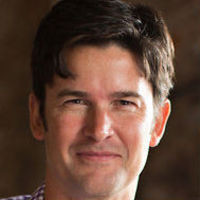Wesley Morris is a critic at large for The New York Times, a staff writer for The New York Times Magazine, and the co-host of Still Processing.
“I think that the taking of extra time to be more thoughtful and less reactive is, to the extent that I have any wisdom to impart, that is it. Just wait a second. Because someone’s going to get there before you get there anyway.”
Thanks to MailChimp and Pitt Writers for sponsoring this week's episode.


















